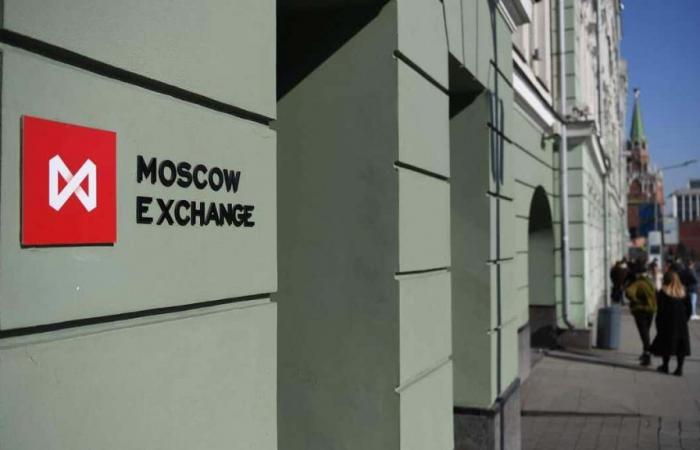The Moscow stock exchange suspended transactions in euros and dollars on Thursday after new American sanctions targeting it, a measure likely to worry part of the population in times of economic uncertainty.
• Read also: In Italy, G7 leaders close to an agreement on Russian assets
• Read also: Czech Republic unmasks Russian influence network
• Read also: Vladimir Putin prefers economic sanctions to European “bedbugs”
“Due to the introduction of restrictive measures by the United States against the Moscow Exchange Group, foreign exchange operations and settlement of instruments in US dollars and euros will be suspended,” the Russian Central Bank announced in a press release Wednesday evening.
The move only affects the Moscow Stock Exchange – Russians will still be able to transact in dollars and euros at the country’s banks – but it could lead to greater volatility in exchange rates.
Marked by several devaluations since the fall of the Soviet Union, many Russians prefer to save in Western currencies and sell rubles during times of economic crisis.
During the Soviet era, the black market for currencies flourished, with prices far removed from the official exchange rate set by the state.
“Businesses and individuals can continue to buy and sell US dollars and euros through Russian banks. All funds held in US dollar accounts remain safe,” the central bank said, wanting to be reassuring.
Many Russian companies and banks have already reduced their dependence on Western currencies over the past two years, with the Chinese yuan now accounting for the majority of foreign currency transactions on the Moscow stock exchange.
Russian banks on Thursday morning showed differences of between 3 and 10 rubles between the price at which they offer to buy and sell currencies.
In an apparent panic following the announcement of US sanctions on Wednesday, some had temporarily raised their exchange rates to as much as 200 rubles to the dollar, compared to the 89 rubles set by the central bank before the announcement.
Moscow has promised to respond to US sanctions, but has not specified in what form.






